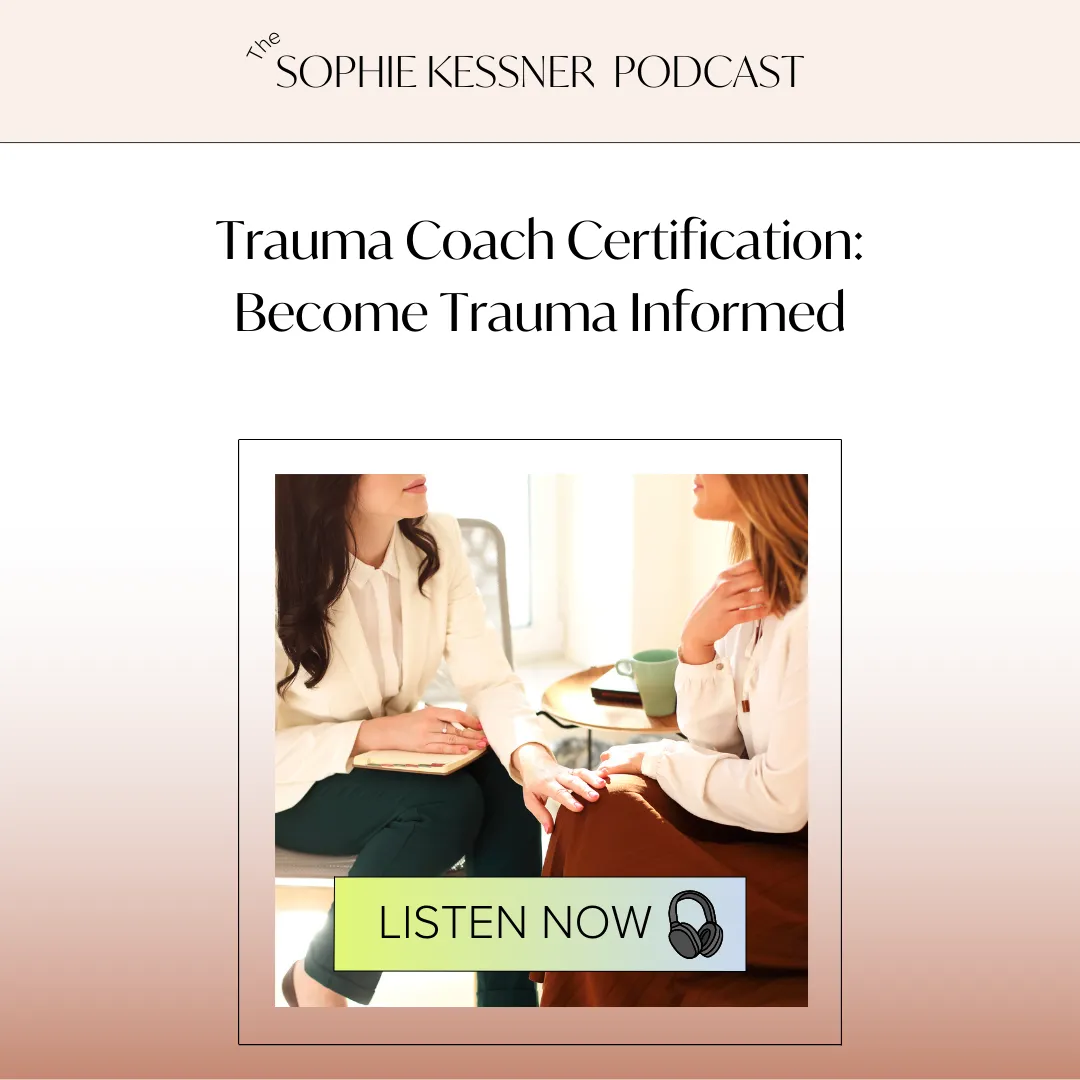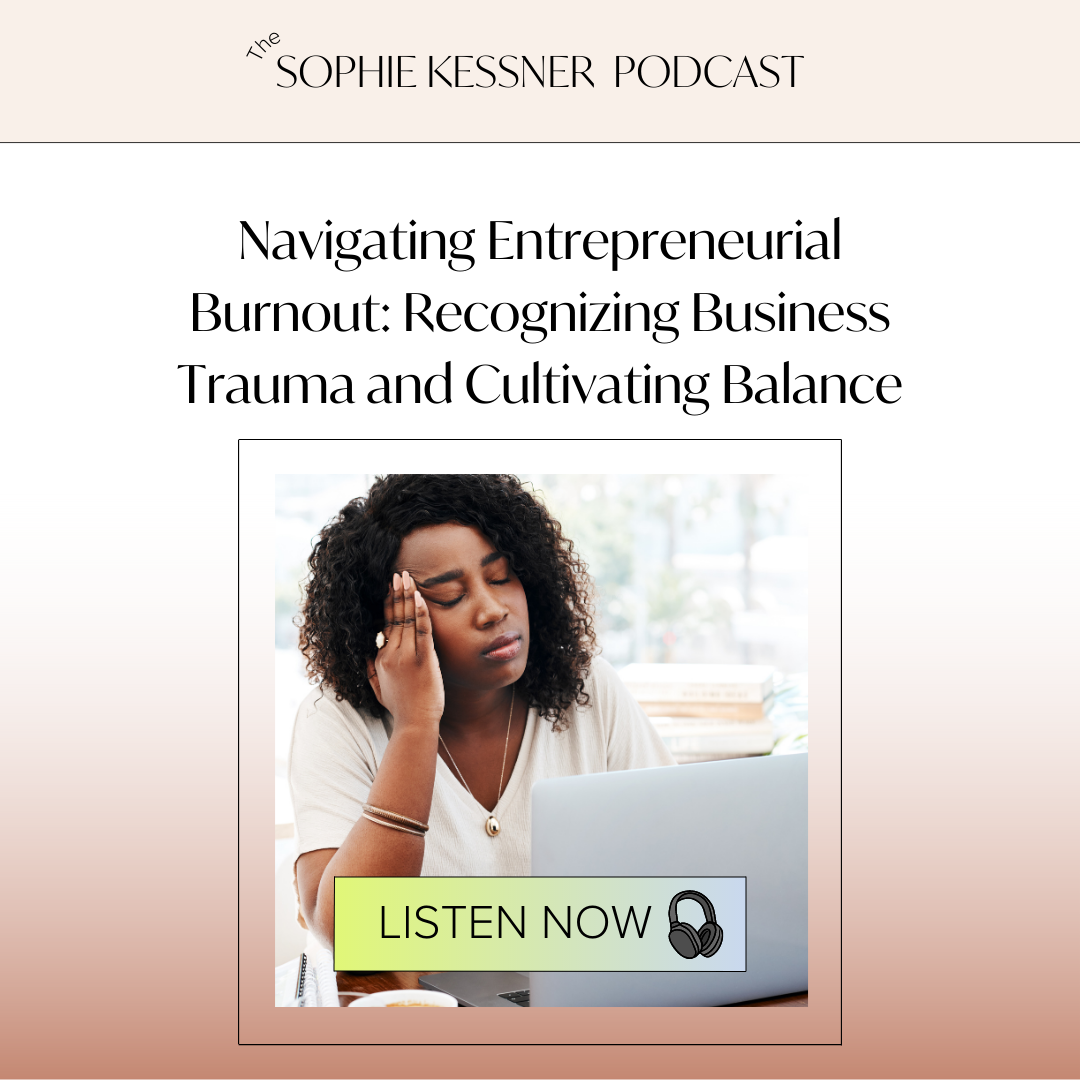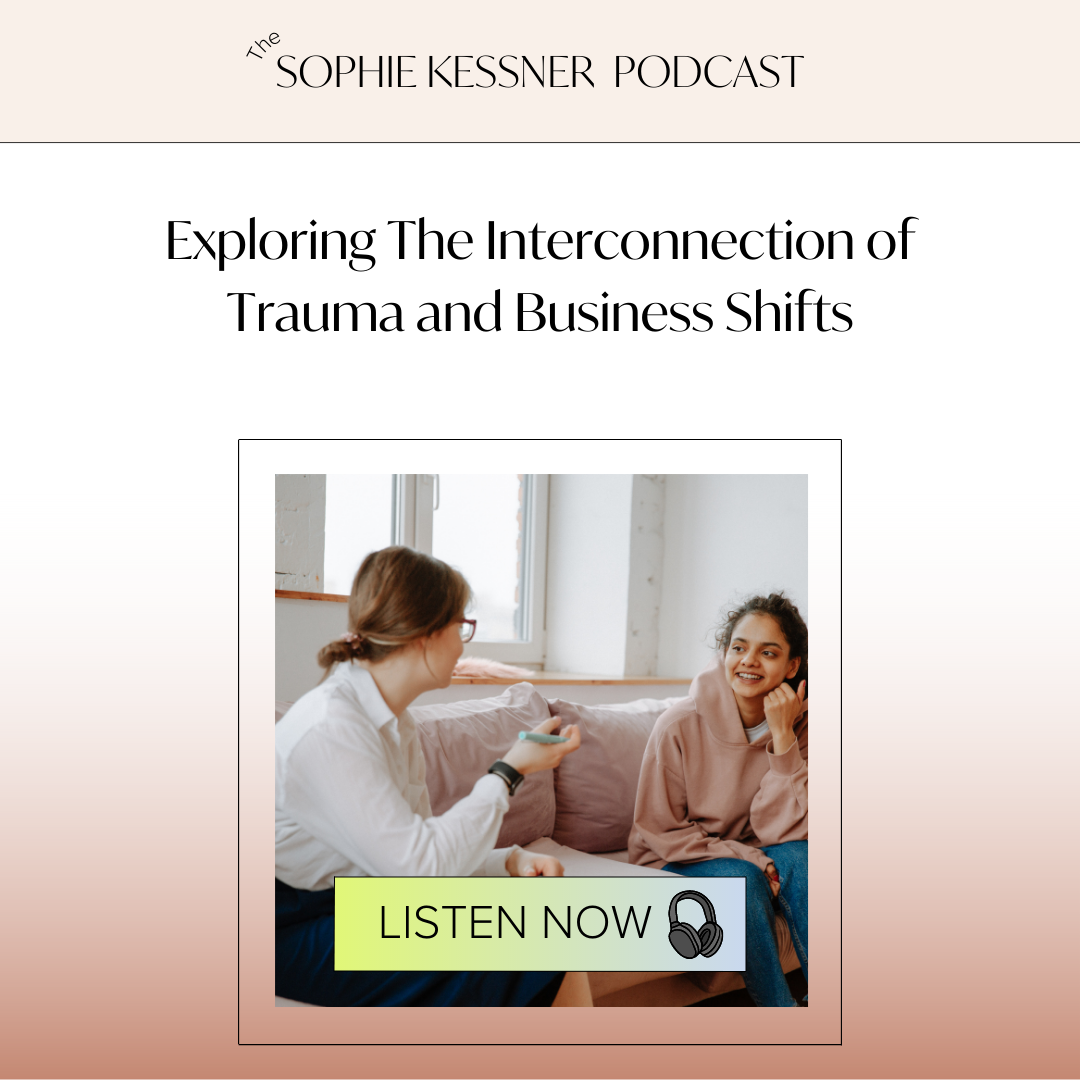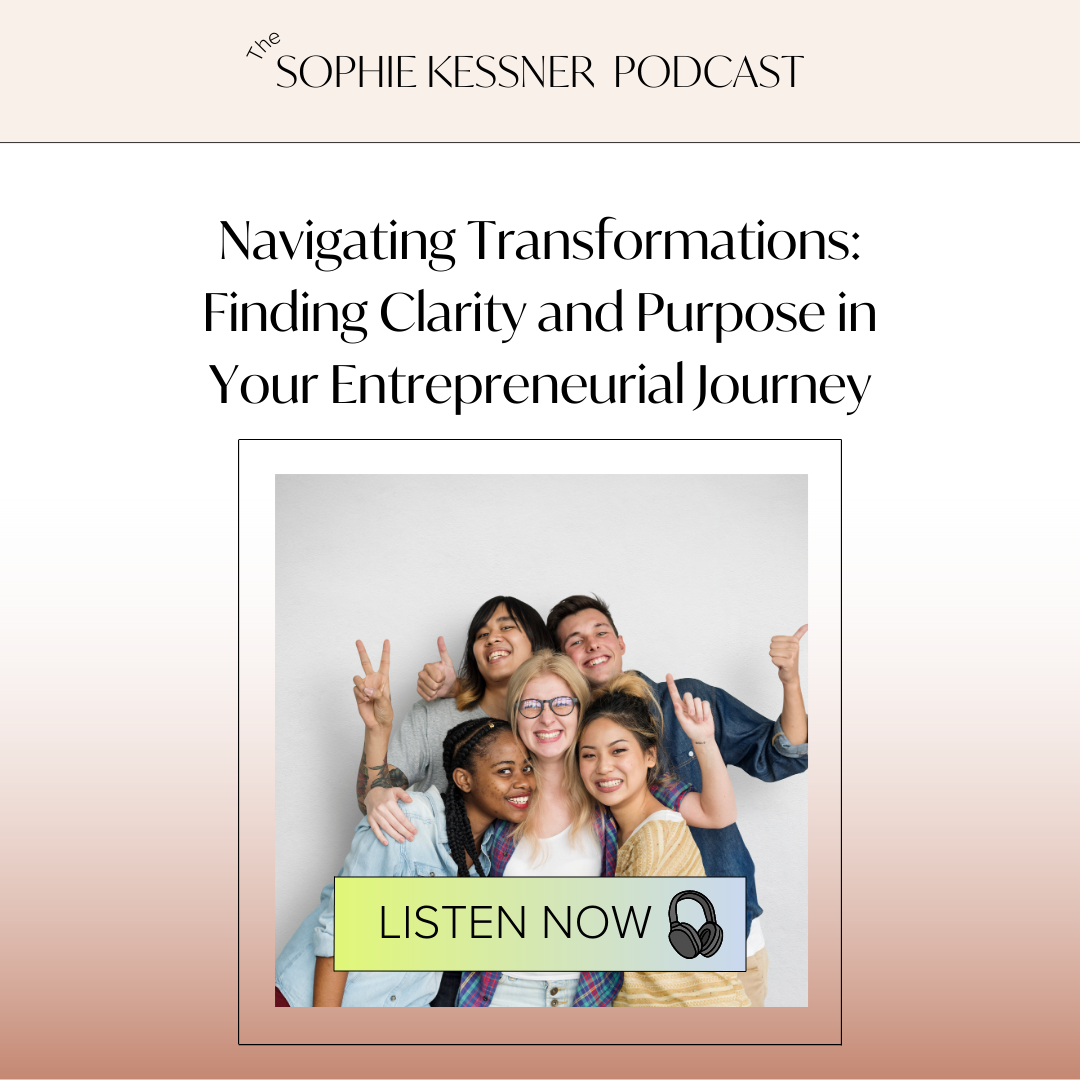Episode Summary
Do you ever oscillate between non-stop work mode and burnout? Join us as we dive into the tricky space of navigating trauma and shutdown responses in the realm of entrepreneurship. It’s essential to work with a professional certified in trauma training, so we’ll be discussing resources to help you find the right practitioner for your needs.
Navigating the complex world of trauma and business growth has always been a challenge for me. I’ve repeatedly experienced the pattern of building something up, reaching momentum, and then burning it all down in boredom. In today’s episode, we discuss how such patterns can stem from a disorganized family upbringing, high risk tolerance, and a protective strategy to always be prepared for change. We’ll also explore ways to update those coping mechanisms and make them more supportive and helpful in our personal and professional lives.
We’ll also talk about the complexities of managing life as an entrepreneur, from relying on stimulants to understanding the deep-rooted causes of burnout. Learn how to create a sustainable and nourishing business growth plan while taking care of your emotional well-being. Don’t miss this insightful and important conversation.
Episode Keywords:
Trauma, Business Growth, Entrepreneurship, Disorganized Family Upbringing, High Risk Tolerance, Protective Strategy, Coping Mechanisms, Certified Trauma Training, Stimulants, Burnout, Financial Stability, Self-Care, Hyperdependence, Caffeine, Trust the Process
Episode Chapters:
(0:00:00) – Navigating Trauma in Business Growth
(0:06:06) – Working With Trauma and Shutdown Responses
(0:13:18) – Trauma and Entrepreneurship
Episode Resources Mentioned:
- https://somaticswithsoph.com
- https://directory.traumahealing.org/
- Episode 8: Debt & Financial Security
- Episode 4: Financial Literacy & Life Intentions
- Episode 3: Financial Literacy in Business
- Episode 1: Toxic Capitalism and Performative Business
Blog Introduction:
It’s no secret that entrepreneurship can be a high-stress environment, with constant pressure to perform, to be successful, and to stay afloat amidst changing markets and trends. For entrepreneurs who have experienced trauma, this pressure can exacerbate symptoms of anxiety, depression, and other mental health struggles. In the latest podcast episode on The Sophie Kessner Podcast, host Soph, talks about the intersection of trauma and entrepreneurship, and the importance of prioritizing mental health in business.
The Harm of Always Seeking More:
One of the biggest challenges for entrepreneurs who have experienced trauma is the tendency to prioritize success over mental health. The culture of hustle and grind can exacerbate this tendency, making it easy to overlook the importance of taking breaks, resting, and maintaining a healthy work-life balance. As Soph points out, this can be especially dangerous for people who have experienced trauma, as the stress and pressure of entrepreneurship can trigger symptoms and cause long-lasting harm to mental health. It’s important to remember that growth is a process, and being present in the journey is just as important as the end result.
Trauma Trained Versus Trauma-Informed
Being trauma-informed means having an understanding of the impact that trauma can have on individuals and communities. It involves recognizing the signs and symptoms of trauma and working to create a safe and supportive environment for people who have experienced trauma.
On the other hand, being trauma-trained means having specialized training in treating trauma and its effects. A trauma-trained professional has received specialized education and training in evidence-based treatments for trauma, such as Trauma-Focused Cognitive Behavioral Therapy (TF-CBT), Eye Movement Desensitization and Reprocessing (EMDR), or Somatic Experiencing (SE).
While being trauma-informed is a great first step, it’s imperative to work with a trauma-trained professional when dealing with more intense trauma responses. This is because trauma responses can be complex and multifaceted, and they require a nuanced understanding of the various factors that contribute to trauma.
For example, trauma responses may involve physiological changes in the body, such as an increase in heart rate or changes in breathing patterns. A trauma-trained professional understands these changes and can help clients develop strategies for regulating their bodies and managing their emotions.
Additionally, trauma responses may be triggered by specific events, people, or situations that are associated with the trauma. A trauma-trained professional can help clients identify these triggers and develop coping strategies for managing them.
Finally, trauma responses may involve complex emotions and thought patterns, such as feelings of shame, guilt, or self-blame. A trauma-trained professional can help clients work through these emotions and develop a more compassionate and understanding relationship with themselves.
Working with a Trauma-Trained Professional:
In short, while being trauma-informed is an important first step in creating a safe and supportive environment for people who have experienced trauma, it’s essential to work with a trauma-trained professional when dealing with more intense trauma responses. By doing so, you can ensure that you have the knowledge and skills needed to help clients navigate the complexities of trauma and build a brighter future for themselves.
You can learn more about Soph’s training and background in trauma work at somaticswithsoph.com or find a certified Somatic Experiencing Practitioner on the directory at: https://directory.traumahealing.org/
Early Childhood Experiences:
Many entrepreneurs who have experienced trauma may have developed coping mechanisms and survival strategies in response to early childhood experiences. These experiences can shape our foundation for navigating the world, and can impact our beliefs about success, safety, and self-worth.
Unpacking Infant Communication Patterns
As infants, we communicate in two primary ways: through crying and through turning away. When our requests are not met, we develop defense responses that can show up in adulthood as patterns of burnout, overwhelm, or freeze.
For example, if we learned as infants to turn away from our needs rather than communicating them, we may struggle as adults to express our feelings and needs clearly. Similarly, if we cried without receiving a response, we may struggle with patterns of burnout or overwhelm as a way of compensating for unmet needs.
Working With Trauma and Shutdown Responses
As entrepreneurs, we often find ourselves oscillating between periods of intense productivity and burnout or overwhelm. However, it’s crucial to recognize that there’s also a difficult space of “freeze” that we may encounter.
This freeze response can be especially difficult for entrepreneurs who have experienced trauma, as the stress and pressure of entrepreneurship may trigger a shutdown response. It’s important to remember that shutting down is not a sign of defeat or failure – it is often an essential part of self-care and maintaining mental health.
In response to overwhelming or traumatic events, our nervous systems can go into a state of freeze or shutdown. This response is a natural and automatic survival mechanism that allows us to conserve energy and resources in the face of danger.
During a freeze response, we may feel numb, disconnected, or disassociated from our surroundings. Our bodies may become immobile or stiff, and we may have difficulty moving or speaking. We may also experience a sense of time slowing down or speeding up, as well as feelings of helplessness or hopelessness.
When we’re in a freeze state, our nervous system is stuck in a state of hyperarousal, which means that it’s constantly scanning our environment for danger. This can lead to feelings of anxiety, tension, or fear, even when there is no immediate threat present.
It’s important to recognize that these responses are normal and adaptive in the face of trauma, but they can also be disruptive and distressing. For many people, the experience of freeze or shutdown can be overwhelming and confusing, especially if they don’t understand what’s happening in their bodies or minds.
If you’re experiencing symptoms of freeze or shutdown, it’s essential to work with a trained professional who can help you develop strategies for coping with these experiences. Some common strategies for managing the freeze response include deep breathing, mindfulness meditation, grounding exercises, and gentle movement.
It’s also important to remember that everyone responds to trauma differently, and there is no “right” or “wrong” way to cope. By working with a trauma-informed therapist or coach, you can develop a personalized plan for navigating the aftermath of trauma in a way that feels safe and supportive.
Building Capacity and finding safety in the Body
Finding safety in the body is paramount when navigating patterns of behavior and responses within ourselves. Whether working with an individual or a system, the first step is always to cultivate a sense of safety and connection. This can be particularly challenging when confronted with overwhelming feelings of confusion, rigidity, or shutdown. However, the key lies in allowing space and using simple tools to help resource and orient back to the present moment. By actively noticing where we are, making contact with objects, moving our limbs and head, and taking deep breaths, we can slowly thaw the frozen response and begin feeling more relaxed and present. Though it may start small, building capacity to find safety in the body is the foundation for making lasting changes in how we navigate the world.
Conclusion:
The intersection of trauma and entrepreneurship is a complex and challenging space, but it is possible to navigate with the right tools and strategies in place. By prioritizing mental health, seeking out professional support, and developing strategies for managing trauma responses, entrepreneurs can build sustainable and fulfilling businesses that prioritize health, well-being, and success. As we move forward, let’s remember to prioritize our mental health and support one another in this journey.












